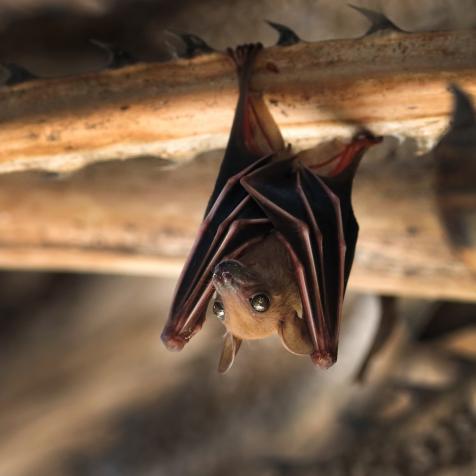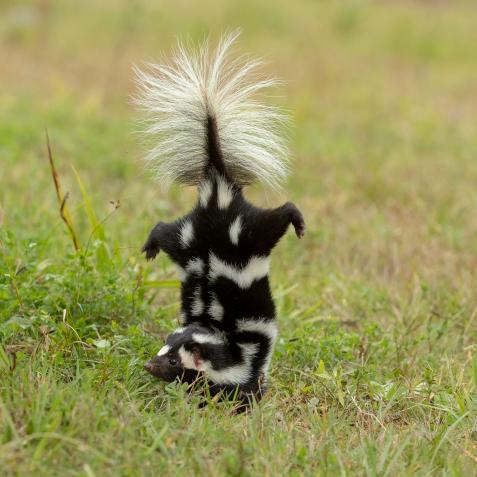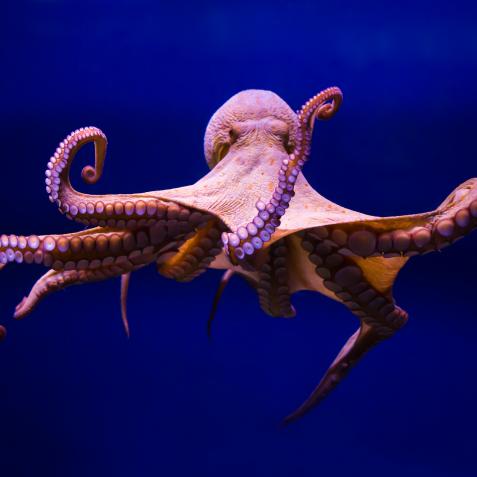
5 Things You Didn't Know Climate Change Could Do
Climate change has some complex effects that you may not even realize exist. Read on to learn more.
By now, most people are familiar with the immediate effects of our atmosphere's rising temperature: sea ice is disappearing, wildlife species are going extinct, and weather events are getting more extreme. But the atmosphere plays a role in nearly every planetary process there is, and as a result, climate change has some complex effects that you may not even realize exist. In fact, some might even seem impossible — but they're frighteningly real.

iStock/Cookelma
1. Bumpier Flights
If you're not a frequent flyer, this might not seem so bad — more air turbulence just means a few spilled drinks and a few more minutes with the seatbelt sign illuminated, perhaps. But turbulence is a very big deal for air travel as a whole, injuring hundreds of passengers and costing airlines tens of millions of dollars in damage every year. Air turbulence is an effect of jet streams, which are fast-flowing air currents high in the atmosphere that affect weather patterns by pushing air masses around. A 2013 study published in the journal Nature Climate Change concluded that as the atmosphere warms, jet streams will move faster, and that will make the atmosphere more susceptible to turbulence. A 2007 study bears that out: Turbulence has increased by 40 to 90 percent since the 1950s.
2. More Disease Outbreaks
In the coming decades, disease outbreaks could change in two ways: diseases we get from animals may proliferate, and diseases we thought were long dead may return. The warm temperatures and greater rainfall lead to booming populations of disease-carrying animals like mosquitoes that can spread malaria and dengue fever and rats that can spread bacterial diseases like leptospirosis and tularaemia (not to mention Lyme disease from the ticks that hitch a ride). Both mosquito and rat populations are on the rise.
Meanwhile, bacteria and viruses lying dormant in the permafrost are waking up. In 2016, a 12-year-old boy in Siberia died of anthrax believed to have come from a century-old reindeer carcass that thawed in a heat wave. The fear is that there's more where that came from; corpses of people who died of smallpox and other historic diseases could resurface beneath the permafrost to infect the living.
3. Greater Tilt in the Earth's Axis
This might be the strangest effect of climate change, although it's also one of the least alarming. Since the turn of the 20th century, the Earth's axis of rotation has shifted about 34 feet (10.5 meters). A new study says that this is at least partially due to climate change: The melting of the Greenland ice sheet, along with other areas, has shifted the distribution of mass on the planet. Just as changing the shape of a spinning top alters the way it spins, shifting planetary mass from land to ocean alters the Earth's axial tilt. Luckily, this change is so small that it isn't expected to have much of an effect on weather, agriculture, or navigation.
4. Stronger Earthquakes
How could a warming atmosphere cause earthquakes? According to a 2009 study of typhoons and earthquakes in Taiwan, it starts with the greater storm activity that comes from a warming climate. Huge storms are characterized by reduced atmospheric pressure, which helps faults in the Earth's crust move more easily. Earthquake faults are under enormous strain, and all you need to release it is "the pressure of a handshake," as geophysicist John McCloskey of the University of Ulster puts it. It's also possible that that pressure could come from melting ice sheets lightening their load on the Earth's crust. Still, it should be noted that there's little evidence to suggest natural earthquakes are getting stronger or more frequent.
5. More Volcano Eruptions
This, too, might be caused by glaciers easing off of land masses and giving the planet's crust more room to breathe. "It can affect magma flow and the voids and gaps in the Earth where magma flows to the surface as well as how much magma the crust can actually hold," Graeme Swindles, an author on a 2017 study into the phenomenon, told Scientific American. He and his colleagues compared Iceland's volcanic record with glacial coverage and found that as the climate warmed, eruptions increased. As with earthquakes, there's no evidence that volcanic activity is on the rise quite yet, but scientists think it could happen.
This article first appeared on Curiosity.com.


















